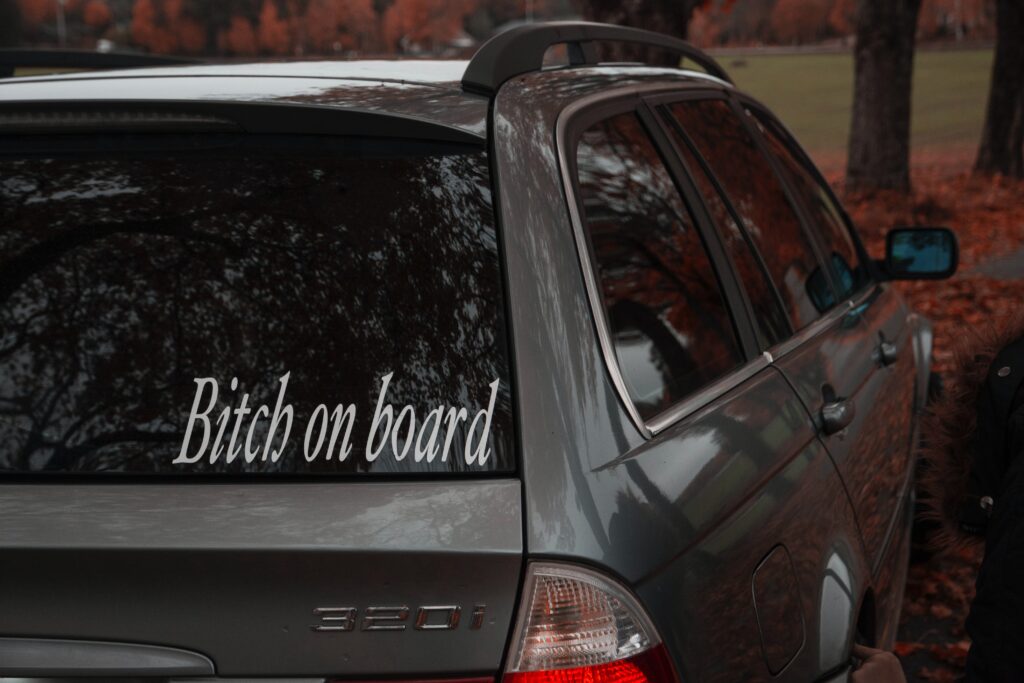
“Namaste, bitches!” calls the blowsy, purple-clad yoga instructor on the greeting card, pulling all the sting from the word. I buy the card and leave it on the kitchen table for days, reconditioning myself.
The casual use of “bitch,” with fondness or in teasing, has taken me some getting used to. The card relaxes my resistance; applied to a group of women, “bitches” creates instant camaraderie, neutralizing all negative connotations. But directed at one woman, the word still trails its old sense: snarling meanness, and before that, a dog crazed with lust.
Can you ever fully reclaim a word? Some activists and social theorists say is dangerous even to try; you will weaken your cause. I am not convinced. Even partial success means there is one less insult in our vocabulary (at least until someone invents a new one, see below). “Queer” is by now so amicable, it would make lousy ammo for a sniper. “Pola Oloixarac is a bitch,” writes Adam Morris in The Point, explaining, “While a satirist endeavors to reveal that the emperor has no clothes, a bitch will point out when he is very badly dressed.”
That is the kind of bitch I would like to be. Not the kind suggested on Everybody Loves Raymond, after Ray finds Debra a PMS remedy and triumphantly lists the symptoms it relieves. “Does it say bitchy, Ray?” she retorts, knowing full well what drove him to the pharmacy.
PMS can turn anyone into a bitch. Life itself can be a bitch. But those are temporary situations. Permanent, full-time bitchiness repels anyone in its vicinity. We all step back, eager to avoid Mom’s wrath.
Apparently it was not always thus. Or rather, the behavior always repelled, but the word was softer. You can feel the affection in the exclamation, made in 1896, “Oh great-hearted sweet bitch Emily Bronte.” In 1785, “to stand bitch” merely meant to make tea or perform a female role. The Old English bicce was the word for a female dog and was probably used as casually as dog-show people use it today. But by the fifteenth century, the word was applied to women who dared show intense sexual desire (like an unleashed bitch in heat). It was downhill from there.
A handful of language experts associated with the Oxford English Dictionary had great fun a few weeks ago at a discussion titled “‘Bitch,’ ‘bint,’ and ‘maid’: exploring sexist language in the dictionary.” “There are 1,500 words for vagina,” pointed out Dr. Sarah Ogilvie, a linguist and lexicographer who directs the Dictionary Lab at the University of Oxford. “There are more than 3,000 pejorative words for women in English slang.”
Slang words for women outnumber slang words for crime, for drugs, for drinking, even for sex. We can only speculate why. Ogilvie also noted that the latest set of pejoratives is female first names. A Karen, for example, is White, entitled, racist, and, yeah, bitchy. A Becky is a young Karen. A Stacy is a slut.
The only male name so privileged is a Chad, who is an attractive, confident, sexually active alpha male.
I tried to make myself like the word “crone,” knowing I was aging into it, but “resting bitch face” undid me. Are women trying so hard—smiling so brightly, glossing our lips and widening our eyes and composing an interested expression—that the minute we relax, all the contempt we have stifled slides across our faces?
Ah, but wait. Behavioral researchers used Noldus Information Technology’s FaceReader to measure RBF and found just as many unconscious expressions of contempt in men. “It’s easily recognized due to its curious facial phenotype,” they reported: “lips and brow not quite angry or sad, the lip tightened and raised more strongly on one side than the other.” Yet we do not call it Resting Jerk Face.
Miles Davis’s wife Betty Davis, managed to own the word “bitches” back in 1970, maybe because it was already used more easily in Black slang. When Miles was about to change the face of jazz with his new album, she suggested the explosive title “Bitches Brew” instead of his milder “Witches Brew.” The album is now immortal, but at the time, even some music critics winced and kept their distance.
When Madonna recorded “Unapologetic Bitch” nearly half a century later (on her Rebel Heart album Rebel, in which the word “bitch” is used forty-four times), nobody blinked. “Said it, did it, hit it, quit it,” she sang. “I know you’d like it if I stayed home and cried/But that ain’t gonna happen, here’s the reason why.” She has calculated the choice and decided to risk sounding like an unapologetic bitch: “Sometimes you know I gotta call it like it is.”
There is strength in bitchiness. Which takes me to the root of my aversion: Why, in women, was (and is) strength equated with meanness? A woman burning with sexual desire might, I suppose, seem scary, if you were guarding societal norms that tried to constrain the wanton. Or afraid you could not rise to the occasion. Strong opinions, delivered without the padding of soft compliments, might feel mean, too. Asserting yourself and ignoring those who try to hinder or discredit you is downright cruel, from the point of view of those you ignore—or those who would rather whine and snarl than act. But they are more likely to be the complainers, so why did “bitch” become a verb of complaint?
Maybe because as a society, we are terrible at constructive criticism, so the words come out too harsh or the recipient bristles too quickly. People escalate, raising their voice and sharpening their words, when they feel it is the only way they will be heard. In men, that is called aggressive, take-charge leadership. In somen….
Somebody needs to give us all lessons in peaceable complaint. Namaste, bitches!
Read more by Jeannette Cooperman here.
